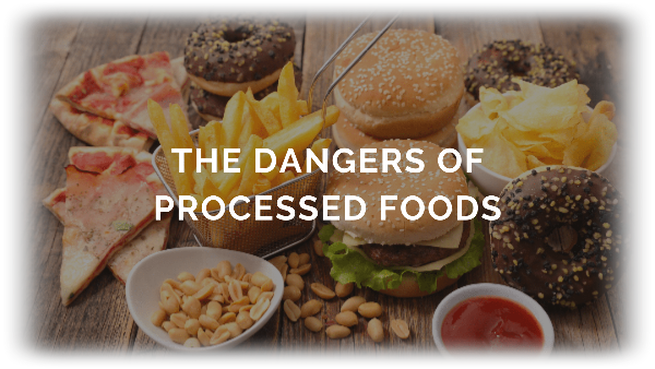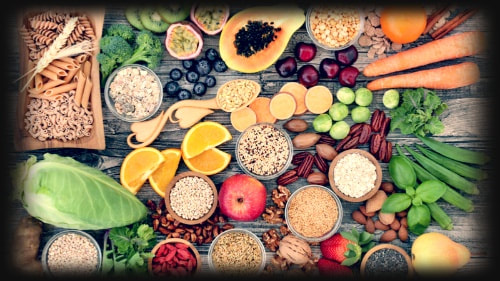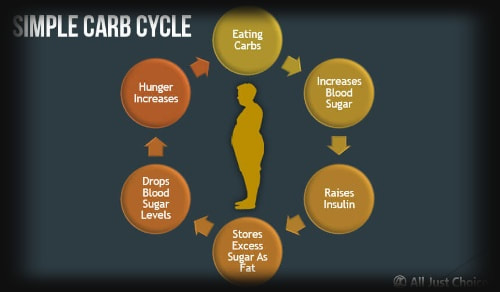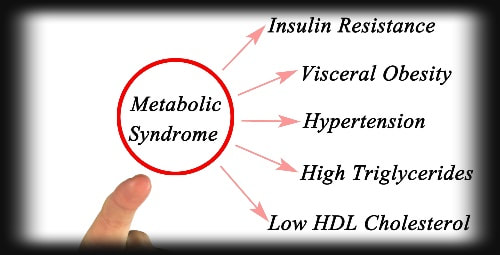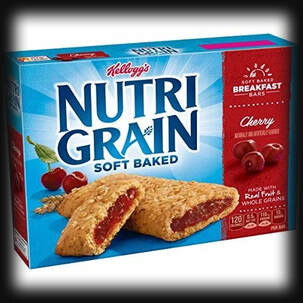|
Over just a few decades our lifestyles have shifted drastically. From physically demanding jobs in agrarian societies, to highly sedentary roles & the chronic excessive consumption of processed food products. A lot's changed. The food landscape that now exists today is highly centered around profitability; mass production at minimal cost. Our financial outlay as a consumer can now be minimal - but at what cost to our health? Findings within nutritional science studies over recent years is yet to be reflected into governmental dietary guidelines. Resultantly, we're presented with decade-old, ill-informed information, hindering our ability to establish a diet conducive to good health. It’s hardly surprising that we’re now faced with several health epidemics, in the forms of diseases such as type 2 diabetes (T2D) and cardiovascular disease (CVD). Whilst there are several lifestyle factors at play when it comes to the progression of such non-communicable diseases, the role of heavily processed foods is a significant one; empirical evidence has shown that rising obesity rates closely parallel the increased consumption of processed foods (PF) consumption in the USA. In this piece, I’ll outline exactly what processed foods are, outline a few of the key reasons why - when consumed in excess - they're so detrimental to health, & finally how our diet can be adjusted to mitigate these effects. WHAT ARE PROCESSED FOODS?Processing includes methods designed to change the characteristics of the flavour, shelf-life and/or nutritional content of food. Not all of these processes are inherently bad & some are in-fact necessary for us to have access to the foods we desire. It’s important to recognise that almost all food found in our local supermarkets has been processed to an extent. Whilst not ideal, there are plenty of minimally processed foods that still bring an array of health benefits without huge detriment. However, there’s also a huge amount of highly processed food options. Ready meals, white bread, pastries, cakes & biscuits - all foods with obscene amounts of added sugar & salt to enhance palatability & increase their consumption - bringing home revenue for the producer. To provide you with an idea of the scale of the issue at hand, it's estimated that over 50% of the UK diet is based on processed foods - the highest in Europe. WHY WE SHOULD AVOID THEMEMPTY CALORIES Processed foods have notoriously low nutritional value - they’re essentially empty calories. Reason being is that they are stripped of nutritional content - fibre, vitamins, minerals, & proteins -, all highly essential for optimal bodily function & the prevention of disease. Fibre has a particularly important role in the human body. It enables the slowing down of digestion, thus keeping blood glucose levels stable. What’s more, fibre contains calories in itself - which for the most part are non-digestible. This means that if you compare equal calories of a processed food vs a non-processed food (e.g. marzipan vs carrots), you could consume an equal amount of calories from both foods, but will digest fewer of those calories from the non-processed alternative. You’ll of course also benefit from the nutritional value the non-processed food source contains. All in all, this means that despite consuming equal weight/calories, having a diet heavily centered around processed foods will facilitate weight gain & malnutrition. Additionally, the refinement of nutritional content allows processed foods to be much more readily absorbed & digested by the body. This not only leads to rapid spikes in blood glucose (which I'll get onto later), but also means that they have a lower thermic effect of food (TEF) - the calories required to break down the food into usable contents by the body. One study compared the post-energy expenditure of two groups of individuals following the consumption of processed food meals vs. whole food meals. In the group consuming the processed food meal, post-eating energy expenditure decreased by nearly 50% compared to whole food meal. This reduced energy expenditure will of course play a role in increased weight gain. WEIGHT GAIN A diet rich in processed foods also leads to weight gain through other mechanisms. The excess consumption of processed foods high in sugar leads to elevated blood glucose levels. Consequently, insulin is produced - at scale. Insulin is an anabolic (storage) hormone; it takes the glucose & stores it in the muscle & liver cells as glycogen. There's nothing inherently bad about insulin; we depend upon it for healthy functioning, like many other hormones. However, once the liver & muscle stores have been fully replenished, insulin will store any additional glucose as fat, thus causing weight gain. What’s more, with a heavily processed-food centric diet, we can become dependent on glucose for energy. Once the bodies stores of glycogen in the liver & muscle cells have been used up, the body has the option to resort to burning fat for energy. However, by consuming excess amounts of sugar & rarely, if ever, entering a fasted state, we become less capable of tapping into our fat stores. Instead, we become reliant on a continued influx of glucose for energy. Consequently, the body continually demands the consumption of carbohydrate. Post-consumption, eventually blood sugar & energy levels will drop significantly, triggering the release of hunger signals to the brain - bringing the urge to eat more carbs. Existing in this carb dependent state will leave you perpetually hungry, desirous of carbs/glucose & unable to utilise any fuel source but glucose for energy. This hunger will of course lead to increased consumption. When we consume more calories than we expend, we’re operating in a positive energy balance and weight gain is the natural result. DISEASE Metabolic syndrome is a cluster of conditions that occur together: increased blood pressure (hypertension), elevated blood sugar levels (insulin resistance), excess abdominal fat, & elevated triglycerides, low levels of HDL (high density lipoprotein - commonly known as ‘good’ cholesterol). The malnutrition, increased hunger & consumption levels, & the high glycemic indices of processed foods all play a role in the onset of metabolic syndrome. Malnutrition - insufficient fibre, vitamins & minerals - leaves your body susceptible to disease via weakened immune response. As outlined earlier, increased hunger & consumption leads to a positive energy balance, in turn leading to weight gain, increased visceral fat, & eventually obesity. This increases the likelihood of disease via further increasing energy intake, whilst decrease an individuals propensity to engage in physical activity. The immediate post-consumption spikes in blood levels of glucose and triglycerides - caused by processed foods - leads to immediate simultaneous rises in oxidative stress, inflammation, and endothelial dysfunction. These all set you on the pathway to type 2 diabetes and CVD. Together, all of these symptoms increase the risk of cardiovascular disease, stroke, cancers, & type 2 diabetes. As you’re probably aware, these are the biggest causes of death in western society. WHAT SHOULD YOU DO?Firstly it’s important to recognise that improving our health & well-being requires taking a holistic approach - catering for all of the key factors, such as stress, sleep, exercise, and nutrition. But, specifically with regards to diet there’s a couple of simple things that can be done to reduce your likelihood of these adverse affects discussed. Begin introducing more whole foods into your diet. Non-processed, low sugar, high fiber foods. Loads of fruit & vegetables is a good place to start. Opt for whole-grain, complex carbohydrate food sources such as brown rice, multi-grain/brown bread, over refined alternatives (white bread, white rice). These foods will provide you with essential nutritional content, whilst also helping keep blood glucose levels much more stable. Avoid foods high in added sugars. Typical examples of this are food products advertised as 'low fat' or 'low salt' - yoghurt & sauces being notorious for this. Producers often compensate for reduced fat or salt content, by adding a ton of sugar to ensure palatability. Of course, also steer clear of the more obvious food products brimming with high sugar content, such as biscuits, cakes, pastries, cereal bars, & fruit juices. Finally, hold yourself accountable. It can be difficult in a food environment that has little regard for our individual well-being, but ultimately there’s an element of personal responsibility that comes into play here. Take ownership of your nutrition; become aware of what it is you ought to be consuming & avoiding, read food labels to distinguish the nutritional content of what you’re buying, opt for the highest quality food that your budget permits. Recognise that your health is the product of both your environment and the decisions you make within it. Control that which you can control. Keen to get on top of your diet & optimise your health? Go ahead & get your free copy of my e-book: 5 Hacks to Enhanced Health CLPT
Personal Trainer in Tunbridge Wells | Personal Trainer in Sevenoaks | Personal Trainer in Tonbridge Personal Training | Personal Trainer | Tunbridge Wells | Tonbridge | Sevenoaks |
Author
Christian Lawal Personal Training.
Personal training in Tunbridge Wells, Tonbridge & Sevenoaks. Archives
January 2024
|
